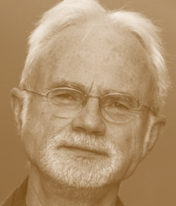Citation
“Music can distract the mind from all that is sacred. If one is not careful, the power of music – appreciated by the ancient Greeks as an important part of their education – can lead us into vulgarity, levity and absurdity.”
Thus wrote Desiderius Erasmus around the year 1519 in a letter to a close friend.
Erasmus claims that by stirring the heart, music can be dangerous to the mind.
In an ode to his composer friend Ockeghem, however, he wrote: “Divina res est musica” —
“Music is a godly thing.”
“It can function as a tool to get to the deepest understanding of Our Lord.”
“For this to happen” – Erasmus claims – “music needs to be minimal in form and humble in appearance.”
The Board of the Praemium Erasmianum
Foundation has decided to award the Erasmus Prize 2019 to the American composer
and conductor John Adams for his contribution to contemporary classical music.
The Prize is awarded to him
on the following grounds:
He has created a new musical idiom by fusing elements from jazz, pop and classical music.
According to the jury, he has made contemporary classical music ‘communicate’ again. That is to say, he has found ways to bridge the gap with audiences previously alienated. This is vital at a time when the genre has increasing difficulty in finding a following.
He often addresses social issues, something he sees as the artist’s duty. What distinguishes him furthermore, is the deeply humanistic nature of his themes.
He is not just a great composer, but also a writer who reflects on the social relevance of classical music. He expresses both musically and intellectually — with the heart and with the mind — the importance of classical music in our time.
